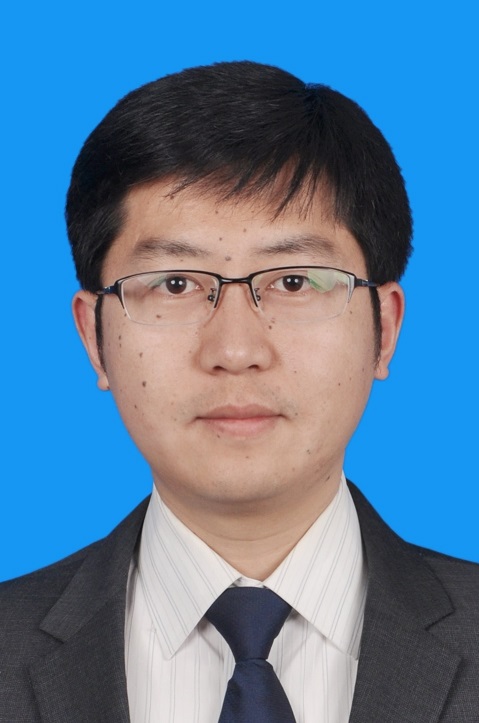
WANG Pu, Associate Professor
Institutes of Science and Development,
Chinese Academy of Sciences
Email: wangpu@casisd.cn
Research Areas
Education
Ph.D., 2014/08, Department of Natural Resources, Cornell University
Master of Science, 2012/01, Department of Natural Resources, Cornell University
Bachelor of Science, 2009/07, College of Resources Science and Technology, Beijing Normal University, Beijing, China
Experience
Work Experience
Associate Professor, December 2017 to present, Institutes of Science and Development, Chinese Academy of Sciences
Associate, December 2017 to June 2019, Belfer Center for Science and International Affairs, John F. Kennedy School of Government, Harvard University
Giorgio Ruffolo Postdoctoral Research Fellow, September 2015 to November 2017, Belfer Center for Science and International Affairs, John F. Kennedy School of Government, Harvard University
Project: The potential of cap-and-trade system in addressing air pollution and greenhouse gas emission in China: institutional and economic analyses
Research assistant, June 2015 to August 2015, Harvard Project on Climate Agreements, John F. Kennedy School of Government, Harvard University
Project: Bilateral Cooperation between China and the United States: Facilitating Progress on Climate-Change Policy
Post-doctoral researcher, August 2014 to June 2015, Department of Natural Resources,
Cornell University, Ithaca, NY, USA
Project consultant, August 2014 to June 2015, Winrock International, USA
Project: Reducing Phosphorus Loads from Agriculture: Creating a Pay-for-Performance Program using Field-Specific Information in Wisconsin, USA
Research assistant, September 2010 to August 2011, Department of Natural Resources,
Cornell University, Ithaca, NY, USA
Publications
Peer-reviewed Papers
*: Corresponding author; #: co-first author.
1. Wang, Pu, Cheng-Kuan Lin, Yi Wang, Dachuan Liu, Dunjiang Song, and Tong Wu. 2021. 'Location-specific co-benefits of carbon emissions reduction from coal-fired power plants in China', Nature communications, 12: 1-11.
2. Wang, Pu. 2021. 'China's air pollution policies: Progress and challenges', Current Opinion in Environmental Science & Health, 19: 100227.
3. Teng, Fei, and Pu Wang. 2021. 'The evolution of climate governance in China: drivers, features, and effectiveness', Environmental Politics, 30: 141-61.
4. Liu, Dachuan, Yan Li, Pengfei Wang, Huaqi Zhong, and Pu Wang*. 2021. 'Sustainable Agriculture Development in Northwest China Under the Impacts of Global Climate Change', Frontiers in Nutrition, 8.
5. Yang, Mingyue, Shikui Dong, Quanming Dong, Pu Wang, Wenting Liu, and Xinyue Zhao. 2020. 'Cooperative grassland management practices promoted by land tenure system transformation benefit social-ecological systems of pastoralism on the Qinghai-Tibetan plateau, China', Journal of environmental management, 261: 110215.
6. Chen, Yan, Jintao Xu, and Pu Wang*. 2020. 'Shale gas potential in China: A production forecast of the Wufeng-Longmaxi Formation and implications for future development', Energy Policy, 147: 111868.
7. Wang, Pu, Lei Liu, Xianchun Tan, Zhu Liu, . (2019). “The Key to Success for China’s Cap-and-Trade System.” Wiley Interdisciplinary Reviews: Climate Change 10(5), e599.
8. Wang, Pu & Wolf, Steven. A. (2019). A targeted approach to payments for ecosystem services. Global Ecology and Conservation, 17, e00577.
9. Wang, Pu, Lei Liu, and Tong Wu. (2018). A review of China’s climate governance: state, market and civil society. Climate Policy, 18(5), 664-679.
10. Lin, C.-K., Lin, R.-T., Chen, P.-C., Wang, Pu, De Marcellis-Warin, N., Zigler, C., & Christiani, D. C. (2018). A Global Perspective on Sulfur Oxide Controls in Coal-Fired Power Plants and Cardiovascular Disease. Scientific Reports, 8(1), 2611. doi:10.1038/s41598-018-20404-2
11. Wang, Pu, Gregory L. Poe, and Steven A. Wolf. (2017). Payments for Ecosystem Services and Wealth Distribution. Ecological Economics, 132, 63-68.
12. Liu, Lei, Wang, Pu, & Wu, Tong. (2017). The role of nongovernmental organizations in China's climate change governance. Wiley Interdisciplinary Reviews: Climate Change, 8(6), e483.
13. Wang, Pu, Steven A. Wolf, James P. Lassoie, Gregory L. Poe, Stephen J. Morreale, Xukun Su, and Shikui Dong. (2016). Promise and reality of market-based environmental policy in China: Empirical analyses of the ecological restoration program on the Qinghai-Tibetan Plateau. Global Environmental Change, 39, 35-44.
14. Wang, Pu, James P. Lassoie, Stephen J. Morreale, and Shikui Dong. (2015). A critical review of socioeconomic and natural factors in ecological degradation on the Qinghai-Tibetan Plateau, China. The Rangeland Journal, 37(1), 1-9.
15. Wang, Pu, Steven A. Wolf, James P. Lassoie, and Shikui Dong. (2013). Compensation policy for displacement caused by dam construction in China: an institutional analysis. Geoforum, 48, 1-9.
16. Wang, Pu, James P. Lassoie, Shikui Dong, and Stephen J. Morreale. (2013). A framework for social impact analysis of large dams: A case study of cascading dams on the Upper-Mekong River, China. Journal of environmental management, 117, 131-140.
17. Wang, Pu, Jianjun Wu, Jianliang Nie, Fanming Kong, Huiyan Ding, and Luihui Zhao. (2010). A comparative study of the capabilities of different vegetation water indices in monitoring water status of wheat. In Chinese. Remote Sensing for Land & Resources, 3 (2010): 97-100.
Books
Lee, Henry, Daniel P Schrag, Matthew Bunn, Pu Wang, Wei Peng, Michael Davidson, and Zhimin Mao. 2021. Foundations for a Low-Carbon Energy System in China (Cambridge University Press).
Wang, Pu, Shikui Dong, and James P. Lassoie, J. (2014). The Large Dam Dilemma: An Exploration of the Impacts of Hydro Projects on People and the Environment in China. Springer.
